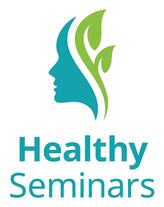We wish our “Find a Qualified Acupuncturist” resource could be simpler but there is no single database that lists everyone legally allowed to preform acupuncture in the United States. The first four links below are resources for locating acupuncture specialists usually called “Licensed or Certified Acupuncturists” most of whom were trained under an accredited Master’s Degree program (more on that below). The next link is for an organization of Physician (M.D.s & D.O.s) who include acupuncture in their practices. The last link is an organization of Chiropractors who include acupuncture in their practices.
Our use of the term “qualified acupuncturists” refers to those legally authorized by their respective state to practice acupuncture. We make no claim about the quality of service you may find from any individual found from these links nor does our listing these links constitute medical advice. Please read our expanded explanation after these links that goes into more detail about the legal and practical considerations for finding qualified acupuncturists in the U.S.
Links for Licensed/Certified Acupuncturists:
Link #1. This link is for the National Certification Commission for Acupuncture and Oriental Medicine. It is the most comprehensive list of Licensed/Certified Acupuncturists for states other than California. Use the “Find a Practitioner” section and click “Acupuncture” and enter the distance from the zip code chosen. For California, see link #2.
http://www.nccaom.org/find-a-nccaom-certified-practitioner
Link #2. This link is for the California State Acupuncture Board that regulates Acupuncturists in that state but, unfortunately, does not list contact information. This is their Advanced Search database. You will need to click the "Acupuncture Board" in the list under "BOARD OR BUREAU" box. In the "CITY" or "COUNTY" box click on the city or county for which you are looking to find a Licensed Acupuncturist. When you find an Acupuncturist you might like to contact, you can "Google" their name or try using the services in link # 3 or #4 below. This Acupuncture Board database also shows if the Licensee is in good standing with the state or if they had been subject to any disciplinary actions.
https://search.dca.ca.gov/advanced
Link#3. This is a private company with a database of Licensed/Certified Acupuncturists. Enter the Acupuncturist's name if you have it or zip code or city for which you are looking to find a Licensed Acupuncturists.
https://www.acufinder.com/
Link #4. An acupuncture oriented publication with another database of Licensed/Certified Acupuncturists. This database also has several filters to narrow your search by specific techniques used, schools attended, etc.
http://www.acupuncturetoday.com/mpacms/at/locator/advanced_search.php
Link #5.This is an organization of Physician acupuncturists that have developed a certification system (ABMA) for their members that includes minimum hours of training and passing an exam to become certified. While the AAMA is a private membership organization and no States require AAMA membership or ABMA certification as a requirement for M.D.s or D.O.s to practice acupuncture, their memberships/certifications offer a degree of assurance that the doctors recognized under this process have undergone some standard of minimum training. These minimum standards were designed to meet or exceed those established by the World Health Organization (WHO) for medical doctors practicing acupuncture. The WHO actually established two categories of training for physicians utilizing acupuncture; “Limited” and “Full.” The AAMA’s minimum requirement of 200 hours of training meets the hours recommended by the WHO for Limited training for physicians. The WHO ‘s recommended Full training for physicians practicing acupuncture is a minimum of 1500 hours – including at least 1,000 hours of practical and clinical training.
http://www.medicalacupuncture.org/FindanAcupuncturist.aspx
Link#6. A non-profit organization that administers exams for certification in Chiropractic acupuncture as an adjunct therapy to chiropractic treatment.
https://www.councilofchiropracticacupuncture.com/find-a-chiropractic-acupuncturist/
More Information on Legal and Practical Issues of Finding a Qualified Acupuncturist in the U.S.
All of the states in the U.S. have laws that require some sort of licensing or certification for a healthcare provider to legally perform acupuncture. However, these laws vary considerably from state to state. Most, but not all states, allow medical doctors and osteopaths to practice acupuncture without requiring them to undergo any formal training or examination in that subject. Some states allow chiropractors or naturopaths to perform acupuncture with some training but no required examination. Still other states allow podiatrists, dentist, physician’s assistants, nurses, or even drug dextox specialists to perform acupuncture in some restricted manner, some of these without any required formal education or examinations.
At the other end of the spectrum are specialist usually titled as a licensed or certified acupuncturist. All but four states – Alabama, Oklahoma, South Dakota, and Wyoming have laws authorizing acupuncture to be performed by a licensed /certified acupuncturist. All of these licensed/certified acupuncturists were required to have completed an accredited educational program and pass formal examinations. Consumers in the four states that do not have laws regulating acupuncture specialists can still usually find those specialists in their state by using the NCCAOM database in link #1 above.
While there is more variation in formal training among those who practice acupuncture than in most other health care fields, consumers seeking acupuncture treatment should apply the same common sense investigation one would apply when looking for a “good” doctor or surgeon. After first verifying the acupuncture provider has undergone the training required to legally practice, ask the same kinds of questions you would ask any professional you are considering entrusting with your care. How much experience have they had in treating similar medical problems? How many treatments do they think it will take before improvements should be seen or until the treatment process is finished? How much will each treatment cost? Will insurance cover any of the cost – if so, how much? In addition to these general questions you should also ask if disposable needles will be used. If needles are reused, ask how they will be sterilized. Some states require licensed/certified acupuncturists to use only disposable needles (most acupuncturists use these anyway) but all states require anyone doing acupuncture to use properly sterilized equipment.
As with any health care provider, those providing acupuncture should be able to answer these questions to your satisfaction. However, one should also follow one’s gut feelings. In addition to the specific answers you get to these questions, consider your instincts. Did you feel comfortable with your encounter with this health care provider? Did anything about them rub you the wrong way? The good news about acupuncture is that, as a general rule, the procedure is very safe – much more so on average than many conventional western medical approaches.
If you have the option – it makes sense to seek out those with the higher level of training but several states have a very limited number of those specialists. Some seeking acupuncture services may find their only resource for those services to be from those other healthcare fields. Whatever the situation, the ANF recommends that, in addition to the common sense advice mentioned above, just keep in mind that if you are being treated with acupuncture and are not being helped for your problem, this does not necessarily mean that acupuncture cannot help you. It may be that the one doing the treatment does not have enough training or experience to make acupuncture work for you but someone else with more ability could.
Our use of the term “qualified acupuncturists” refers to those legally authorized by their respective state to practice acupuncture. We make no claim about the quality of service you may find from any individual found from these links nor does our listing these links constitute medical advice. Please read our expanded explanation after these links that goes into more detail about the legal and practical considerations for finding qualified acupuncturists in the U.S.
Links for Licensed/Certified Acupuncturists:
Link #1. This link is for the National Certification Commission for Acupuncture and Oriental Medicine. It is the most comprehensive list of Licensed/Certified Acupuncturists for states other than California. Use the “Find a Practitioner” section and click “Acupuncture” and enter the distance from the zip code chosen. For California, see link #2.
http://www.nccaom.org/find-a-nccaom-certified-practitioner
Link #2. This link is for the California State Acupuncture Board that regulates Acupuncturists in that state but, unfortunately, does not list contact information. This is their Advanced Search database. You will need to click the "Acupuncture Board" in the list under "BOARD OR BUREAU" box. In the "CITY" or "COUNTY" box click on the city or county for which you are looking to find a Licensed Acupuncturist. When you find an Acupuncturist you might like to contact, you can "Google" their name or try using the services in link # 3 or #4 below. This Acupuncture Board database also shows if the Licensee is in good standing with the state or if they had been subject to any disciplinary actions.
https://search.dca.ca.gov/advanced
Link#3. This is a private company with a database of Licensed/Certified Acupuncturists. Enter the Acupuncturist's name if you have it or zip code or city for which you are looking to find a Licensed Acupuncturists.
https://www.acufinder.com/
Link #4. An acupuncture oriented publication with another database of Licensed/Certified Acupuncturists. This database also has several filters to narrow your search by specific techniques used, schools attended, etc.
http://www.acupuncturetoday.com/mpacms/at/locator/advanced_search.php
Link #5.This is an organization of Physician acupuncturists that have developed a certification system (ABMA) for their members that includes minimum hours of training and passing an exam to become certified. While the AAMA is a private membership organization and no States require AAMA membership or ABMA certification as a requirement for M.D.s or D.O.s to practice acupuncture, their memberships/certifications offer a degree of assurance that the doctors recognized under this process have undergone some standard of minimum training. These minimum standards were designed to meet or exceed those established by the World Health Organization (WHO) for medical doctors practicing acupuncture. The WHO actually established two categories of training for physicians utilizing acupuncture; “Limited” and “Full.” The AAMA’s minimum requirement of 200 hours of training meets the hours recommended by the WHO for Limited training for physicians. The WHO ‘s recommended Full training for physicians practicing acupuncture is a minimum of 1500 hours – including at least 1,000 hours of practical and clinical training.
http://www.medicalacupuncture.org/FindanAcupuncturist.aspx
Link#6. A non-profit organization that administers exams for certification in Chiropractic acupuncture as an adjunct therapy to chiropractic treatment.
https://www.councilofchiropracticacupuncture.com/find-a-chiropractic-acupuncturist/
More Information on Legal and Practical Issues of Finding a Qualified Acupuncturist in the U.S.
All of the states in the U.S. have laws that require some sort of licensing or certification for a healthcare provider to legally perform acupuncture. However, these laws vary considerably from state to state. Most, but not all states, allow medical doctors and osteopaths to practice acupuncture without requiring them to undergo any formal training or examination in that subject. Some states allow chiropractors or naturopaths to perform acupuncture with some training but no required examination. Still other states allow podiatrists, dentist, physician’s assistants, nurses, or even drug dextox specialists to perform acupuncture in some restricted manner, some of these without any required formal education or examinations.
At the other end of the spectrum are specialist usually titled as a licensed or certified acupuncturist. All but four states – Alabama, Oklahoma, South Dakota, and Wyoming have laws authorizing acupuncture to be performed by a licensed /certified acupuncturist. All of these licensed/certified acupuncturists were required to have completed an accredited educational program and pass formal examinations. Consumers in the four states that do not have laws regulating acupuncture specialists can still usually find those specialists in their state by using the NCCAOM database in link #1 above.
While there is more variation in formal training among those who practice acupuncture than in most other health care fields, consumers seeking acupuncture treatment should apply the same common sense investigation one would apply when looking for a “good” doctor or surgeon. After first verifying the acupuncture provider has undergone the training required to legally practice, ask the same kinds of questions you would ask any professional you are considering entrusting with your care. How much experience have they had in treating similar medical problems? How many treatments do they think it will take before improvements should be seen or until the treatment process is finished? How much will each treatment cost? Will insurance cover any of the cost – if so, how much? In addition to these general questions you should also ask if disposable needles will be used. If needles are reused, ask how they will be sterilized. Some states require licensed/certified acupuncturists to use only disposable needles (most acupuncturists use these anyway) but all states require anyone doing acupuncture to use properly sterilized equipment.
As with any health care provider, those providing acupuncture should be able to answer these questions to your satisfaction. However, one should also follow one’s gut feelings. In addition to the specific answers you get to these questions, consider your instincts. Did you feel comfortable with your encounter with this health care provider? Did anything about them rub you the wrong way? The good news about acupuncture is that, as a general rule, the procedure is very safe – much more so on average than many conventional western medical approaches.
If you have the option – it makes sense to seek out those with the higher level of training but several states have a very limited number of those specialists. Some seeking acupuncture services may find their only resource for those services to be from those other healthcare fields. Whatever the situation, the ANF recommends that, in addition to the common sense advice mentioned above, just keep in mind that if you are being treated with acupuncture and are not being helped for your problem, this does not necessarily mean that acupuncture cannot help you. It may be that the one doing the treatment does not have enough training or experience to make acupuncture work for you but someone else with more ability could.





